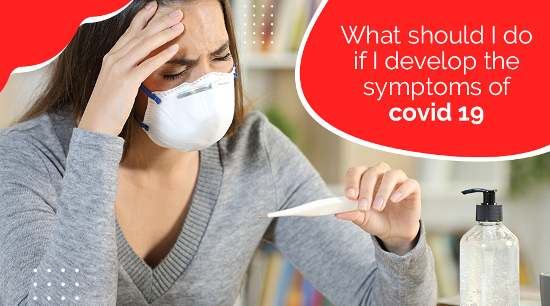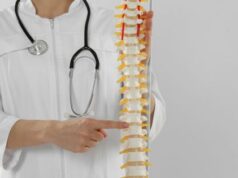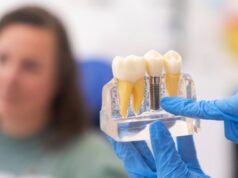COVID-19 is caused by the virus SARS-CoV-2. The symptoms of this disease affect the airway and lungs. These symptoms are not so different from those of flu and the common cold. For safety sake, every sign of cold or flu must be treated as COVID-19 until a same day COVID 19 blood test in London result proves otherwise.
This article communicates what you should do if you develop symptoms similar to COVID-19.


According to WHO, the primary symptoms of COVID-19 are
- Dry cough
- Fever
- Shortness of breath
However, the disease can also cause other symptoms like:
- Headache
- Diarrhoea
- Muscle pain
- Sore throat
The Centre for Disease Control (CDC) adds that a person can also experience loss of smell and taste, chills, and repeated shaking from it as part of the symptoms.
A study done in April 2020 showed that many COVID-19 patients experience temporary inability to perceive with their nose.
The symptoms and severity
The symptoms for COVID-19 may begin within 2 to 14 days after the patient has contracted the virus SARS-CoV-2. However, symptoms do not occur in everyone with the infection. These people are called asymptomatic patients. For those with symptoms, they may discover that their symptoms worsen as the disease progresses.
What should you do when you experience symptoms of COVID-19?
Since COVID-19 is highly contagious, it is essential to take the recommended steps to protect your loved ones from getting infected while you are trying to recover.
Take the initial steps
When you first notice the symptoms,
- Self-isolate: this means staying away from the other members of the family to prevent the virus from getting to them. The suspected patient will need to be confined to one room and use only one restroom.
- Seek medical care if you need: COVID-19 cases should first be reported through a phone call. You should not just walk up to the medical facility for the treatment of COVID-19 without informing the doctor and receiving approval. We recommend you call the emergency numbers if your symptoms are severe and you experience difficulty in breathing.
Take care of yourself
Right now, there is no found cure for COVID-19. However, the condition can be managed with some health care strategies. You too can care for yourself efficiently at home while self-isolating. Do the following for quick recovery:
- Take enough rest
- Drink plenty of water to prevent dehydration
- Manage the cough with some cough medication
- Take acetaminophen to ease off the fever and pains in the muscles
- Keep an eye on the symptoms to know if it is worsening
You should call a doctor for immediate help if you notice you are having difficulty in breathing. If your problem in breathing is severe or becomes worse, call the emergency service.
Protect others
COVID-19 spreads quickly through contact with respiratory droplets. There are also claims that it can spread through faeces, but there is limited research in this area. To protect others, cover your mouth while you sneeze or cough, and stay away from public toilets until you recover.
Ensure you disinfect the surfaces in the isolation room daily and encourage the other members of the house to do the same. Do not leave out the doorknobs and bathroom fixtures. Clean your cooking utensils immediately after use with soap and water and avoid sharing them. Putting them in the dishwasher also works as well.
If you must go out, wear a nose mask and dispose of the tissue, you used while coughing or sneezing in a lined bin. Wash your hands in soap and running water every 20 minutes and avoid touching your eyes, nose, and mouth with your hands.
Observe proper hand hygiene
COVID-19 mostly spreads when the respiratory droplets touch the hands of a patient. This patient will then transfer the virus to whatever he or she came in contact with. To protect others from the infection, wash your hands
- In every 20 minutes even when they are not dirty
- After sneezing coughing or blowing your nose
- Before cooking or eating
- Before wearing or removing contact lenses
- After using the bathroom
- After changing a diaper
- Before and after attending to a wound
- After coming in contact with an animal, its food or waste
- Before and after caring for the sick
If washing your hands with running water and soap is not possible, use an alcohol-based sanitizer.
Caring for the sick
In case you have to take care of a person sick of COVID-19, ensure the person properly self-isolates and frequently ask them for updates on how they are feeling. Help them overcome the symptoms by administering acetaminophen and cough medicine to take care of the fever and cough. If the persons find it difficult to breath or the symptoms worsen, call the doctor or emergency service.
Caring for yourself is also of the essence when you are looking after a COVID-19 patient. To stay safe from the virus at such a risky moment, wear gloves while attending to the patient. Wash your hands immediately after attending to them and ensure you disinfect the surfaces regularly. Let the patient wear a nose mask, scarf or bandana when you are around them. Also, you should remember not to use the same restroom with the patient.
When should you call the emergency service or doctor?
You should call the doctor or emergency service when you notice worsening symptoms of COVID-19. When the symptoms worsen, you will see the following:
- More severe cough
- Difficulty in breathing
- A bluish tinge on the lip or face
- Pressure or persistent pain in the chest
- Confusion or inability to wake from sleep
When you notice these symptoms, call the doctor or emergency services for immediate response.
Is it possible to develop COVID-19 twice?
It is not fully known if a person can develop COVID-19 twice. This is because the response of the immune system to SARS-CoV-2 is not fully understood. However, patients who develop MERS-CoV-2 (a different kind of COVID-19) will not contract the virus again for a while after recovery.
The recovery period for this disease is approximately two weeks for mild cases and three to six weeks for severe cases.
Summary
We advise people who notice symptoms of COVID-19 or test positive with COVID 19 home test kit to call their doctors and be rightly guided on how to care for themselves and prevent the spread of the virus. Proper home care can resolve mild cases, but severe cases should be reported to the hospital.
For more information about symptoms of COVID 19, do well to call us on 020 71830244.









